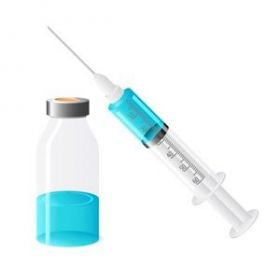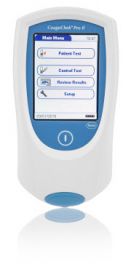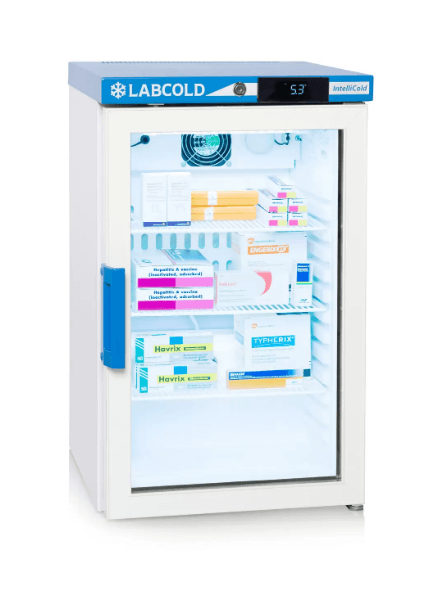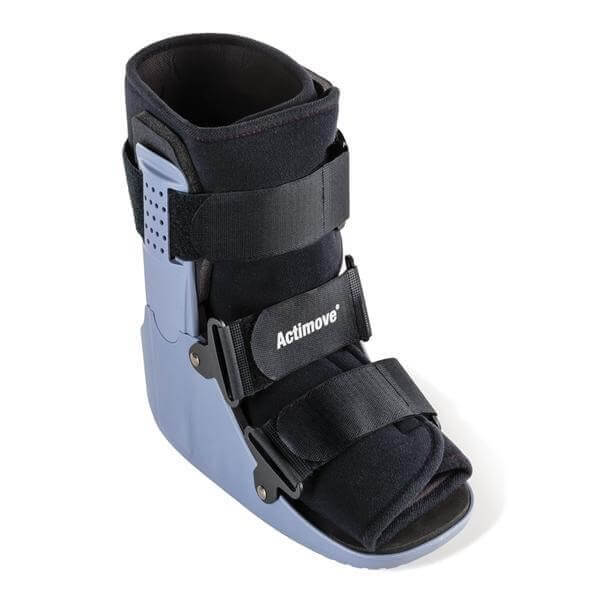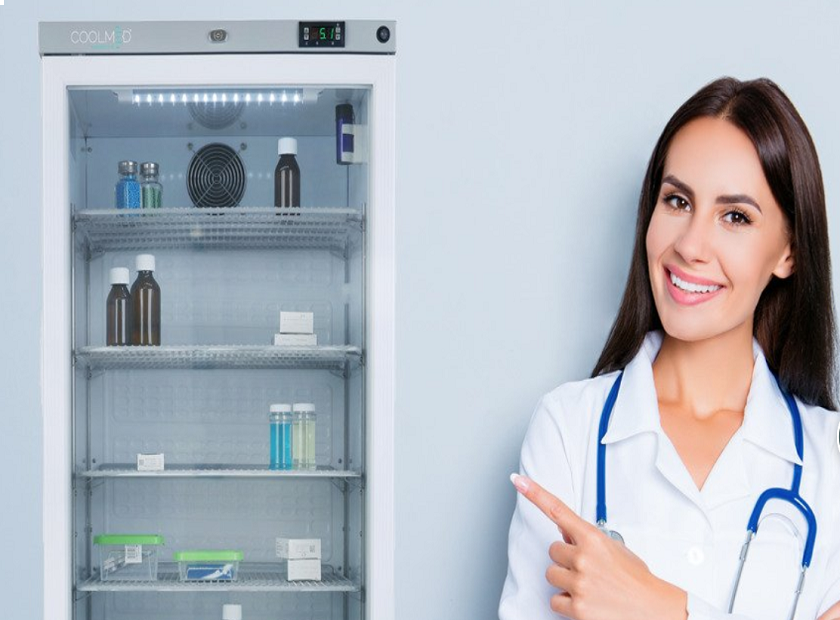What is a Medical Refrigerator - Know About Types and Benefits
Medical-grade refrigerators offer a lot more than the standard fridge does. First, they maintain a more consistent temperature than a kitchen refrigerator. These consistent temperatures are important for storing sensitive things, like vaccines and samples, that won’t hold up to fluctuations.
Medical fridges also need to have alarms to alert staff to any issues. These alarms might go off if the door isn’t closed all the way, or if the temperature goes up or down unexpectedly. This allows the staff to take quick action when something goes wrong.
However, medical fridges are designed to be sturdier and less likely to fail, so these errors are rare. If a fridge goes out, the lab can face a huge replacement expense. In fact, some samples might be irreplaceable. It’s important that the fridge can hold up well to repeated use, and that they’re built with sturdy parts.
For example, if the medical fridge has both a refrigerator and a freezer, it will use two separate compressors, rather than sharing one like a kitchen fridge. It also has more delicate temperature controls and more accurate temperature readings.
Most medical fridges don’t offer shelves in the doors, the way home fridges do. The temperature in the door is hardest to control, so it’s not ideal for medical storage.
Buy Medical refrigerators online
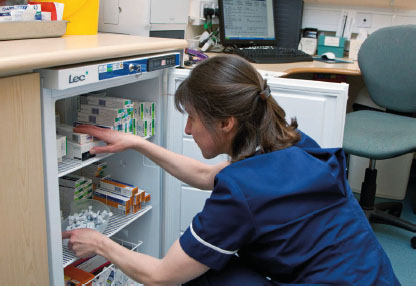
Types of Medical Refrigerators
You’ll need a different medical fridge for different purposes. Here are the main types on the market today.
- Blood Bank Fridge
Blood bank refrigerators for blood storage need to meet certain regulations for use in different countries. They need to have different storage compartments, so the different types of blood and blood products can easily be organized.
These fridges also need to have reliable, accurate temperature controls, since small fluctuations can easily harm the supply.
- Explosion-Proof Fridge
Sometimes, the medical world involves volatile, flammable, or otherwise dangerous substance. An explosion-proof fridge minimizes the risk of something inside it catching fire or exploding.
These fridges actually work with no electrical parts, so no sparks can trigger a fire inside. If you’re storing anything combustible, you’ll need this type of fridge.
- Chromatography Fridge
These medical fridges are most often used in research settings.
The lab technique chromatography involves separating the parts of a mixture. These fridges need to be extra stable and precise for these delicate research practices.
- Lab Fridge
The most basic type of medical refrigerator is simply called a lab fridge. They use precise digital displays to show the temperature. They’re easy to clean, equipped with alarms and locks, and ideal for preserving or cooling down medical tools and samples.
How to Choose a Medical Refrigerator
Safe medical storage is all about choosing the right kind of fridge for your needs. In addition to choosing from the fridge types listed above, you’ll also need to consider a few other factors before you make your choice.
- Temperature Needs
First, know the ideal temperature ranges for what you’ll be storing. Different samples, vaccines, and equipment requires different temperatures. The smaller the possible temperature differences, the more stable the fridge temperature control will be.
- Location
Do you know where your medical fridge will go? Placement makes a difference in which one you should choose.
Some models are freestanding, while others are designed to be built into the lab. For example, built-in styles usually need exterior fans for temperature control. However, freestanding models don’t need this feature, since they have plenty of airflow around them.
Measure your space and consider design before choosing a medical fridge model.
- Temperature Monitors
One of the most important things a medical fridge does is keep track of the temperatures inside accurately.
The temperature readout needs to stay accurate at all times. The thermometer should show the temperature inside, not just the temperature that was set by staff. Make sure the thermometer is properly calibrated.
You’ll also need a data logger that’s compatible with the fridge, to record the temperature readings. That way, you won’t have to rely on staff to log the temperature.
- Storage Design
Another important medical refrigerator consideration is the storage design. For example, if you’re storing tiny samples, you’ll need a different design than if you’re storing large containers. Organization is key, as well as uniform temperatures throughout the storage.
All type of Refrigerators are available at AHP Medicals!
Five Benefits of Buying Medical Refrigerators
- Benefit One – They Ensure a Reliable Cold-Chain for Biologics
- Benefit Two – They Have Accurate Temperature Monitoring and Alarm Systems
- Benefit Three – They Promote Better Air Flow
- Benefit Four - Medical-Grade Units Prevent Unauthorized Staff Access to Biologics
- Benefit Five - They Protect Biological Products from Temperature Excursions Due to Power Failures
What Additional Features You Should Consider?
Buyers should consider five more features when purchasing a medical refrigerator. They include:
- Self-Closing Doors - A busy healthcare worker can inadvertently leave a medical refrigerator's door open. This oversight can ruin supplies when ambient temperatures rise inside the machine. Most pharmaceutical-grade units have self-closing doors that can eliminate this problem.
- Hospital-Grade Cords - Many household refrigerators only come with a standard, three-pronged cord. Medical units have hospital-grade power cords that meet standards outlined in UL 60601-1 and CAN/CSA C22.2 no. 21. They have solid pins and giant plug bodies that eliminate the risk of wire-to-outer-contour shock. These appliances can also withstand strong pull forces.
- Open Door Alarms - Medical-grade refrigerators have alarms that alert staff when doors are open for more than a minute.
- Security Features - Some units have digital locks and keypads, which prevent unauthorized access to medications and vaccines.
- Defrost Cycle -The CDC recommends refrigerators that have an automatic defrost cycle. Units should stay frost-free to store vaccines safely.
If you have been shirking from buying premium quality medical fridges because of the prices, here is your chance to bag a great deal! You can save loads of money by buying medical fridges and other medical supplies online in UK from AHP Medicals. You can get a small medical fridge, dometic medical fridge, mini medical fridge, fridge bag for medication from trusted and authorised brands.



